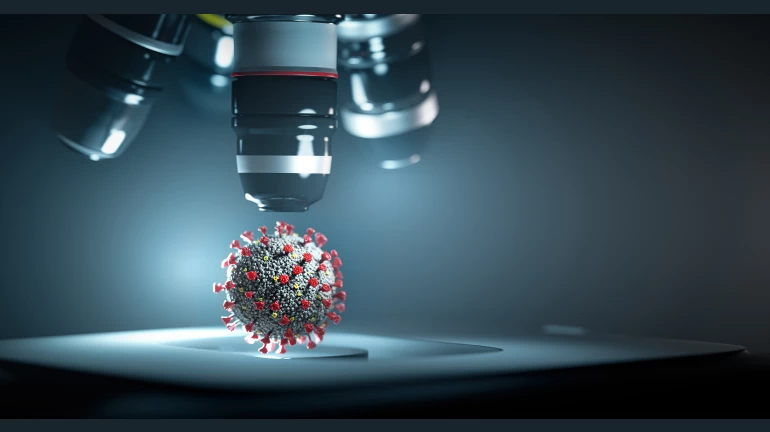
COVID-19 can cause both central and peripheral nervous system complications in various ways. These include encephalopathy, delirium, seizures, cranial nerve palsies, various types of ischemic stroke, Guillain-Barre Syndrome and other neuropathies, and acute myoclonus or ataxia.
In addition, the care of patients with various pre-existing neurological diseases such as parkinsonism, myasthenia, muscular dystrophy, multiple sclerosis and can be potentially impacted in patients infected with COVID-19. Lastly, uncommon neurological complications of the coronavirus are now emerging in cases form around the world, these include infective or immune-mediated encephalitis, critical –illness associated cerebral microbleeds and cerebral cerebral venous sinus thrombosis.
A common problem in COVID ICUs is encephalopathy or acute brain dysfunction. Acute dysfunction is secondary to the infection and can be multi-factorial because of hypoxia, electrolyte imbalance, viremia, and other organ involvement. This is in most patients, very often temporary or reversible, and brain function will improve rapidly in parallel with improvement in lung disease. However in a few patients who are in a prolonged critically ill state with severe lung disease and hypoxia, they are at risk of cerebral hypoxic ischemic encephalopathy, a permanent state of brain dysfunction with catastrophic outcomes.
Coronavirus infection is a strong vascular risk factor and by triggering clotting pathways in blood, causes a hypercoagulable state. Studies have shown that the risk of ischemic stroke after COVID is 7-8 fold compared to that after regular influenza virus (seasonal flu) infection. While only about 1-2 per cent or less patients with the virus will get a stroke, this percentage increases in patients with other stroke risk factors (such as diabetes, high BP, cholesterol, obesity, heart disease). Stroke can be of various types for eg. small-vessel stroke, medium size vascular strokes, or even large-vessel occlusion (LVO) in which case, patients have a devastating stroke due to acute occlusion of a major large artery in the brain. Indeed, young healthy patients (sometimes in their 20s) with no stroke risk factors, have been increasingly found to present with massive strokes after post-COVID large vessel occlusions.
The peripheral nervous system is also separately a potential target for direct or indirect involvement by infection. Cranial nerve involvement can occur in COVID-19, especially olfactory nerve involvement with anosmia (loss of smell), loss of taste and flavor which usually recovers completely over a few weeks. Other isolated cranial nerve palsies can occur such as Bell’s (seventh cranial nerve) palsy where one-half the face is paralysed, and acute hearing loss (8th nerve).
COVID-19 infection can trigger a severe immune response that attacks one’s own nerves leading to a more serious condition called GBS (Guillain-Barre Syndrome), an immune-mediated destruction of peripheral nerves causing paralysis of limbs and breathing. These patients may present acutely to the emergency and then will require treatment with immune-modulatory treatment such as IVIG or Plasma exchange.
The virus can sometimes cause seizures as part of general neurological dysfunction because of various reasons as outlined above for encephalopathy. Another problem that can occur are acute movement disorders such as myoclonus (body jerks) or ataxia (body imbalance) concurrent with or soon after COVID-19 infection.
One more important aspect for patients suffering from chronic neurological problems such as Parkinson’s disease is that they may have a sudden worsening of their Parkinson’s due to coronavirus infection. This requires close monitoring and adjustment of medications.
Symptoms of other neurological conditions such as multiple sclerosis, myasthenia other immune-mediated neurological disorders, for which patients maybe on immunosuppressive medications- can be worsened after COVID-19 infection. In these cases, one has to be more aggressive in treating the infection as their immune systems may not clear the coronavirus as effectively as in normal patients, and their immunosuppressive medications may need to be temporarily reduced.
Lastly, association of coronavirus with the brain and the nervous system what is now being increasingly referred to as long COVID-19 syndrome. The patient gets an infection and after that, he may have clouding of his sensorium, cognitive function will be impacted and the patient might become slow in mentation.
Often people report that after COVID-19 even for several months they are unable to think or focus clearly and are not quite present. This has been referred to as COVID fog; It is a fogging of one’s mental state which may be persistent till several months after the infection.
One doesn’t really know the reasoning or occurrence from the scientific standpoint but it might be because of the way in which the virus affects the body in general, and the immune response of an individual’s body and brain to the virus.
The author of the article is Dr Pankaj Agarwal, Sr. Consultant – Neurology, Head – Movement Disorders Clinic and in – charge, DBS Program at Global Hospital (Mumbai).





